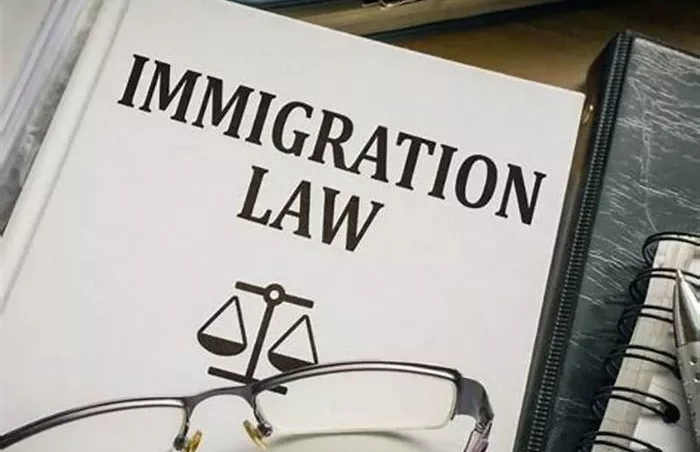Mexico, a country with a rich cultural tapestry and a vibrant economy, has a set of immigration laws that govern the entry, stay, and residency of foreign nationals. These laws are pivotal in shaping Mexico’s demographic landscape, economic dynamics, and international relations. Understanding Mexico’s immigration laws is crucial for anyone looking to visit, work, study, or reside in this diverse nation. This article provides a detailed exploration of Mexico’s immigration framework, covering key visa categories, requirements, processes, and recent developments.
Historical Context and Legal Framework
Mexico’s immigration laws have evolved significantly over the years, shaped by historical events, economic priorities, and international agreements. The modern legal framework is primarily governed by the Ley de Migración (Migration Law) of 2011 and its regulations, which outline the rights and obligations of migrants, immigration procedures, and the responsibilities of government agencies involved in immigration matters.
Visa Categories and Requirements
Mexico offers various visa categories tailored to different purposes of visitation and residency. Understanding these categories and their requirements is essential for potential migrants:
Visitor Visas: Designed for tourists and individuals visiting family or friends in Mexico. These visas are typically issued for up to 180 days and do not permit employment.
Temporary Resident Visas: Intended for individuals wishing to reside in Mexico for more than 180 days but less than four years. This visa allows holders to undertake remunerative activities with the appropriate authorization.
Permanent Resident Visas: Granted to individuals seeking indefinite residency in Mexico. This category is suitable for retirees, investors, and others intending to settle in Mexico permanently.
Work Visas: Necessary for foreign nationals planning to engage in remunerative activities in Mexico. Different types of work visas exist, depending on the nature of the employment and the qualifications of the applicant.
Student Visas: Issued to individuals enrolled in educational programs in Mexico. These visas are typically valid for the duration of the academic program.
Humanitarian Visas: Provided to individuals requiring international protection, such as refugees and asylum seekers.
Each visa category has specific requirements regarding documentation, financial solvency, health insurance, and other criteria, which applicants must fulfill to obtain legal status in Mexico.
Application Process
The process of applying for a Mexican visa varies depending on the visa category and the applicant’s country of origin. In general, the steps involve:
Gathering Documentation: Applicants must compile and submit required documents, which may include passport copies, photographs, proof of financial means, and any additional documents specific to the visa type.
Submitting Application: Visa applications are typically submitted to the nearest Mexican consulate or embassy abroad. In some cases, applications may be submitted online through the official portal of the Instituto Nacional de Migración (INM).
Interview and Biometrics: Depending on the visa type and consulate requirements, applicants may need to attend an interview and provide biometric data, such as fingerprints and photographs.
Decision and Issuance: After processing, the consulate will inform applicants of the visa decision. If approved, applicants may receive a visa sticker in their passport or a visa authorization letter, which must be exchanged for a visa at an INM office upon arrival in Mexico.
SEE ALSO: CORPORATE IMMIGRATION LAW: NAVIGATING KEY CONCEPTS
Rights and Obligations of Foreign Nationals
Once in Mexico, foreign nationals must abide by Mexican law and respect the rights of others. Key rights include access to healthcare services, education for minors, and labor protections as stipulated by Mexican labor laws. Foreign nationals also have obligations, such as complying with immigration regulations, reporting changes of address, and respecting public order.
Recent Developments and Policy Changes
In recent years, Mexico has implemented various policy changes to streamline immigration processes, enhance border security, and respond to regional migration flows. These developments include:
Migration Policy Reform: Efforts to modernize immigration procedures and align them with international standards.
Border Security Enhancements: Measures to strengthen border security and combat irregular migration.
Humanitarian Initiatives: Programs to assist vulnerable migrants, including refugees and victims of human trafficking.
Bilateral Agreements: Negotiations with neighboring countries and international partners to manage migration flows effectively.
These developments reflect Mexico’s commitment to managing migration in a manner that balances national security with respect for human rights.
Challenges and Criticisms
Despite efforts to improve its immigration system, Mexico faces challenges and criticisms related to:
Irregular Migration: The persistence of irregular migration flows through Mexico, often involving migrants from Central America and other regions.
Human Rights Concerns: Issues related to the treatment of migrants in detention facilities and during deportation processes.
Integration: Challenges related to the integration of immigrants into Mexican society, including access to employment and social services.
Public Debate and Future Outlook
The topic of immigration in Mexico sparks public debate and policy discussions regarding national sovereignty, economic impact, cultural diversity, and international obligations. As Mexico continues to evolve its immigration policies, stakeholders, including government entities, civil society organizations, and international partners, play crucial roles in shaping the future landscape of migration in the region.
Conclusion
Mexico’s immigration laws and policies are multifaceted, reflecting the country’s historical context, economic priorities, and international commitments. For individuals considering visiting, working, studying, or residing in Mexico, understanding these laws is essential to navigate the legal framework effectively. By adhering to legal requirements and respecting Mexican norms, foreign nationals can contribute positively to Mexico’s dynamic social fabric and economic vitality.
By staying informed about Mexico’s immigration laws and policies, individuals and organizations can engage constructively in discussions about migration and contribute to the country’s ongoing efforts to manage migration flows effectively while upholding human rights and dignity.


